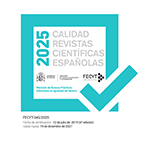Municipal rents in private hands: a comparative approach to the indirect collection of fiscal and judicial rights in medieval Loulé and Porto (late 14th - early 16th centuries)
Abstract
By the second half of the 14th century, leasing municipal rents to private individuals (known as tax farming) was already prevailing in most Portuguese municipalities. In this paper, we will study this system of rent collection in two urban centers: Porto and Loulé, in the period between the end of the 14th century and the beginning of the 16th century. In particular, we intend to determine the sociological profile of the tax farmers operating in those two urban contexts, as well as their relationship with local power and royal administration. Ultimately, we expect to identify dynamics of upward and downward social mobility linked to participation in this business, while verifying whether tax farming worked as a platform for social advancement or a consequence of already belonging to the ruling elite. In order to achieve these results, we will analyze the accounting books, and town council minutes available.
Downloads
Article download
License
In order to support the global exchange of knowledge, the journal En la España Medieval is allowing unrestricted access to its content as from its publication in this electronic edition, and as such it is an open-access journal. The originals published in this journal are the property of the Complutense University of Madrid and any reproduction thereof in full or in part must cite the source. All content is distributed under a Creative Commons Attribution 4.0 use and distribution licence (CC BY 4.0). This circumstance must be expressly stated in these terms where necessary. You can view the summary and the complete legal text of the licence.
En la España Medieval is an open access journal that does not charge authors for article processing (submission, review or editing) or publication.












